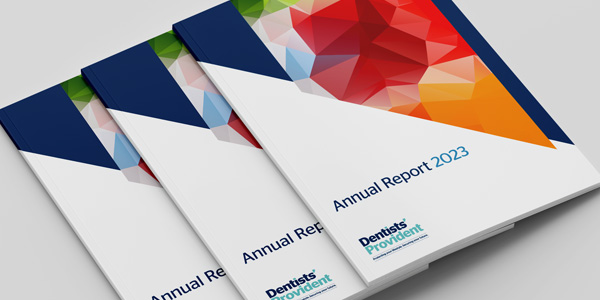
Vitamin D is an essential vitamin that helps to regulate the amount of calcium and phosphate in our bodies and is essential for healthy bones, teeth and muscles. More recently the media, scientists and the public have focused on its ability to defend us from infection by supporting our immune system. Too little vitamin D can lead to bone pain and muscle weakness.
Since the start of the coronavirus pandemic, there has been much controversy over whether vitamin D’s ability to stimulate a cellular immune response and activate our defence mechanisms to destroy bacteria and viruses is able to fight COVID. This article explores the current thinking.
Sources of vitamin D
There are two forms of vitamin D; D2 (ergocalciferol) that is ingested in our diets and can be found in oily fish, egg yolks, red meat, liver, and fortified products, and this we can’t synthesise in our bodies unlike D3 (cholecalciferol) that is produced in our skin when exposed to sunlight - UVB radiation. We need adequate levels of both.
From about late March/early April to the end of September, most of us should be able to get our recommended daily dose with sunlight, and how long that takes each day is closely related to your skin type and colour. However, with restricted travel since the coronavirus pandemic hit, the lockdowns have reduced our ability to get out as much as we would have previously and many of us have had our holidays and winter sunshine plans put on hold.
The Department of Health & Social Care (DHSC) advise everyone in the UK to take a 10-microgram vitamin D supplement every day in the autumn and winter. However, BAME individuals who have dark skin are advised to take a daily supplement all year.
Vitamin D and COVID
In March last year two hospitals in North West England began taking vitamin D level readings from patients and prescribing them with high doses of supplements. Other hospitals followed suit, as studies had suggested it had an essential role, not only in our immune system function, but could reduce the risk and severity of certain respiratory conditions. However, there wasn’t enough evidence for health bodies to universally recommend taking it.
In April, dozens of doctors wrote to the BMJ suggesting they recommend the use of supplementation as a ‘simple, safe step’. In October, a response to the BMJ article ‘Vitamin D and covid-19: enough evidence to recommend supplements?’ pointed out that there were around 30 studies demonstrating that having optimal blood levels of vitamin D (75-150 nmol/L) reduces the risk of infection, and the severity of the disease, including death, with many researchers now regarding the evidence as ‘overwhelming’. Again, supporting the view that there is little to be lost by taking them (as vitamin D3 supplements are inexpensive and have a low risk of toxicity) and potentially a huge amount to gain.
Current guidance
The government’s current line, as of July last year states ’It has also been suggested that vitamin D could reduce the risk of Acute Respiratory Tract Infections (ARTIs) and COVID-19. This has been explored in 2 new rapid reviews, published today, from the Scientific Advisory Commission on Nutrition (SACN) and the National Institute for Health and Care Excellence (NICE). PHE commissioned SACN to examine new evidence on whether vitamin D supplementation could reduce the risk of ARTIs and supported NICE to review emerging evidence on vitamin D and the prevention and treatment of COVID-19.’
By November, the government’s advice was to take daily supplements as it was winter, but with the statement on COVID staying the same, ‘As yet there is insufficient evidence to prove that it helps people respond to COVID-19, but as more evidence is accumulated, our understanding may change,’ suggesting there is more work required to research the link, so the best you can do is watch this space…
An article published in The Lancet Diabetes & Endocrinology on 11 January this year entitled ‘Vitamin D and COVID-19: why the controversy?’ supported this conclusion and stated that ‘data on the function of vitamin D in bone growth and maintenance is clear-cut and has informed practical clinical guidelines and public health policies over the years, evidence supporting the role of vitamin D in other health and disease processes, in particular in acute respiratory tract infection, remains patchy.’
What should you recommend to your team, family and patients? Well, The Lancet article concluded with ‘In an ideal world, all health decisions would be made based on overwhelming evidence, but a time of crisis may call for a slightly different set of rules.’
So really it is your call; if vitamin D supplements won’t have a negative effect on your patient’s medical health, then what harm could it do?
References available on request.
This article is intended for general information only, it is not designed to provide financial, health or other advice, nor is it intended to make any recommendations regarding the suitability of any plans for any particular individual. Nothing in this article constitutes an invitation, inducement or offer to subscribe for membership or additional benefits of Dentists’ Provident.
No responsibility or liability is assumed by Dentists’ Provident or any copyright owner for any injury or damage to persons or property as a consequence of the reading, use or interpretation of its published content. Whilst every effort is made to ensure accuracy, Dentists’ Provident, the authors, Editors and copyright owners cannot be held responsible for published errors.
Dentists’ Provident exercises editorial control only over material published and/or produced by it. No responsibility or liability is assumed by Dentists’ Provident for any articles produced or reproduced in third party publications and/or websites.
The views or opinions expressed do not necessarily reflect views of Dentists’ Provident or copyright owners. Inclusion of any advertising material does not constitute a guarantee or endorsement of any products or services or the claims made by any manufacturer.
If you have any questions, please contact our member services consultants by emailing press@dentistsprovident.co.uk or calling 020 7400 5710.
If you have any questions, please contact our member services consultants by emailing
memberservices@dentistsprovident.co.uk or calling 020 7400 5710.

Our 2024 Annual General Meeting will be held at 91-94 Saffron Hill, London, EC1N 8QP on Friday 24th Ma…
Read more
The 2023 annual report from Dentists’ Provident, a leading income protection provider for dental profe…
Read more
Our next exhibition is the British Dental Conference & Dentistry Show in May, where we look forward to meeting anyone interested in becoming a member or members wanting to discuss their plans.